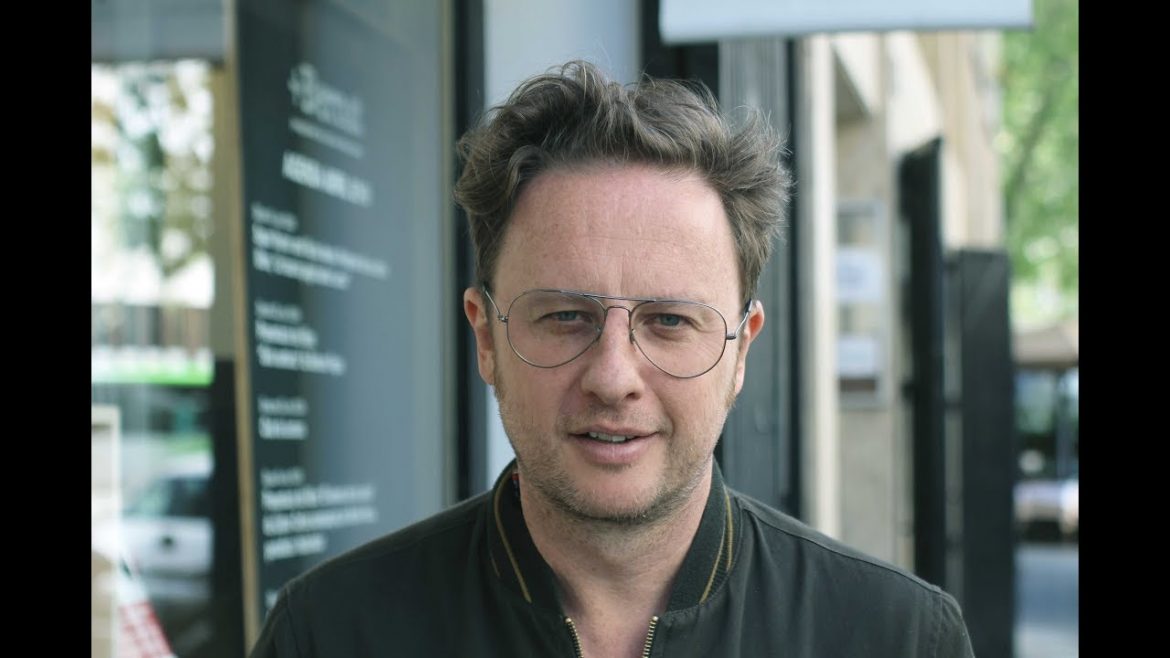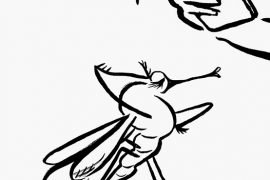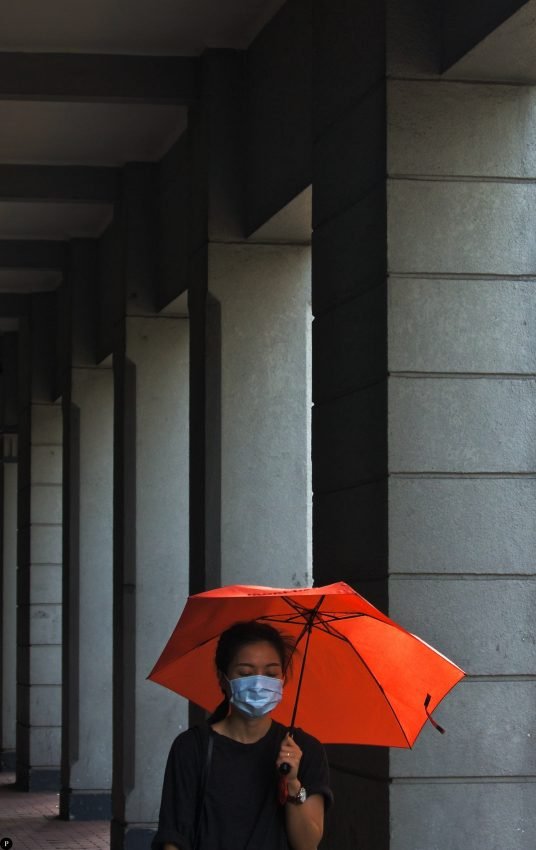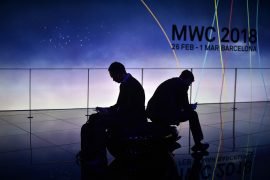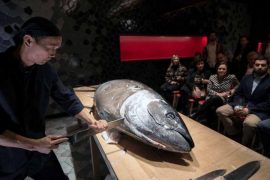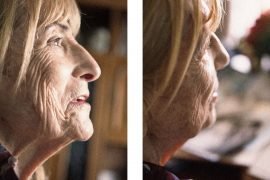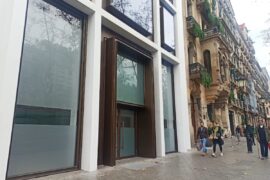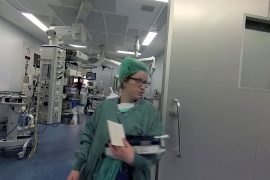– A tango sings “veinte años no es nada” (“twenty years is nothing”), but it is a lie. What comes to your mind, when looking back?
– My feeling is that everything has happened so fast, without even noticing it. Along these years there has not been any moment when I have counted: five, ten, fifteen… I have found myself at twenty, all of a sudden! And it is a little distressing, because no band that I like lasted more than five years… On the other hand, since we started with Mishima we were clear that we wanted to do works, that our mission was to make records, and therefore we cannot complain much.
– There is a significant moment in the history of the band, in 2005, when you change English for Catalan as the main language. How was the process?
– It was not the result of a strategic decision, but rather akin to the birth of the vocation to compose songs. At the beginning you make themes as a kind of game, adopting the formulas of bands that you like. I started singing, finishing the degree in France, and the bands of my French friends also sang in English. The game continued in Barcelona: in the first album I sing a song in Catalan, in the second there are already three, and in the third almost all of them. It is the confirmation of this vocation, of realizing that songs were important to me, and that composing was not an exercise od disguising, of hiding, but rather the opposite, of revealing oneself.
“Packing the Apolo and making a good concert, noticing the communion with the public, was a very important moment for us”.
– The other turning point is Ordre i aventura, with an extraordinary concert at the Sala Apolo in 2010 and, a few months later, another at the Palau de la Música.
– With Ordre i aventura we collected some of the things that we had planted during the previous five years. It was the first tour we did with our current manager, the first time we did a promotion with professional ambition, and also the moment when I left the job that I had back then, to devote myself to music as a main activity. At that point, the bulk of the audience that we had achieved already allowed me to think that I could be a musician. Packing the Apolo and making a good concert, noticing the communion with the public, was a very important moment for us.
– And this October you will perform at the Liceu… Have you ever imagined it?
– A few years ago, something like that was unimaginable. It impresses quite a lot. It is one of the few scenarios in Barcelona where we have not played yet, and it is marvelous-
– Along this path there has also been a change in the formation. Oscar de Aniello and Dani Acedo participated in the recording of Ordre i aventura, but during the tour they were no longer part of the band. This process was friendly, but also painful?
– Absolutely. Working in the world of music condemns you to live always in precariousness. It is an art sensitive to change and, in fact, itself promotes change. A band is a game of vocations, of dreams, of fantasies, and all those who are part of it are sensitive to this logic. At that time, Oscar was involved in the Facto Delafé project, which was doing better at the level of recognition than Mishima. It is true that his departure meant the breaking of a small certainty, but I believe that in the long run it was for the better. Alfons Serra and Xavi Caparrós joined the band and, ten years later, continue among us.
“When that first idea you had can become all the songs in the world, you feel almighty, as if you were directly in touch with the gods.”
– How is the work of composing songs alone at home?
– Composing is a pleasure, the most wonderful part of making music. When that first idea you had can become all the songs in the world, you feel almighty, as if you were directly in touch with the gods. Then make decisions, you close the possibilities of the song that will finally be… This process is nice, but it also has a frustrating part. When the time comes to record those first notes is when you get nervous. Imagine that your psychology is so fragile that you, alone at home and without anyone to control you, you get nervous when pressing the record key. And now transfer this situation to a professional studio, with a technician, a producer, your musicians: There, you do get super nervous!
– The songs are written by you, but in the band, you are five. How is a theme changing when you work it together?
– I do the melody and the lyrics, but after that even the initial purpose of the song can change. I can think that a song is taking one direction here, and an arrangement makes it go elsewhere. And we have to be faithful to this, be faithful to the virtue that involves a song going in a certain direction. I think that the growing of a group consists precisely in knowing how to put ourselves all at the service of the themes.
– It has always been said that the Mishima formula is somewhere between pop-rock and author’s song. Do you think it’s a good way to define it?
– Yes, and I think it’s a tension that is reflected in the production of our albums.
– Do you think that this is precisely your great strength?
– Resolving this tension should be. Having known how to solve it or having found a sound that responds to these two impulses. The lyrics are important, but we do not want to sacrifice the physical part of rock, the most powerful part. The ideal is that a song can move you in a more tangible, more physical way, and through this first emotion you get ideas or images that have a meaning. This is ambition.
“The artist has to play with established forms and discover their possibilities”
– I see that you like especially the work of Joan Vinyoli…
– Yes, he is one of those poets who has been accompanying me over the years.
– Could we find an influence or a reference of Vinyoli, even an indirect one, in your work?
– I do not know… I have not imposed myself to know him in a rigorous way. I come to him often, as with Auden, but it is not to solve anything, nor to seek inspiration. It is for pure aesthetic pleasure, just as with music. And yet it is likely that poets, especially those who write in Catalan, have had an impact on my way of understanding what is sung and what is not to be sung. Vinyoli always gives me the feeling that the whole universe is contained in each poem: his vocation to be a poet, death, life, his moral tensions… everything is there. This is depth! Having this relationship with what you do can be annoying at times, it can lead to some kind of excessive gravity. That’s why I think that from time to time it’s also good to write like a game, and not just say important things.
– You insist a lot, in the issue of the game…
– Yes, because I think it’s fundamental. Johan Huizinga’s Homo ludens, which is marvellous, explains that all the rituals of human beings are games, and I think the poem also. In a poem you have some established forms, which are the words, and you start to put one next to the other until you realize that, depending on how you put them, they acquire a meaning or a different one. And through this game you find truths. It’s the game of life, practically. The artist has to play with these established forms and discover their possibilities.

